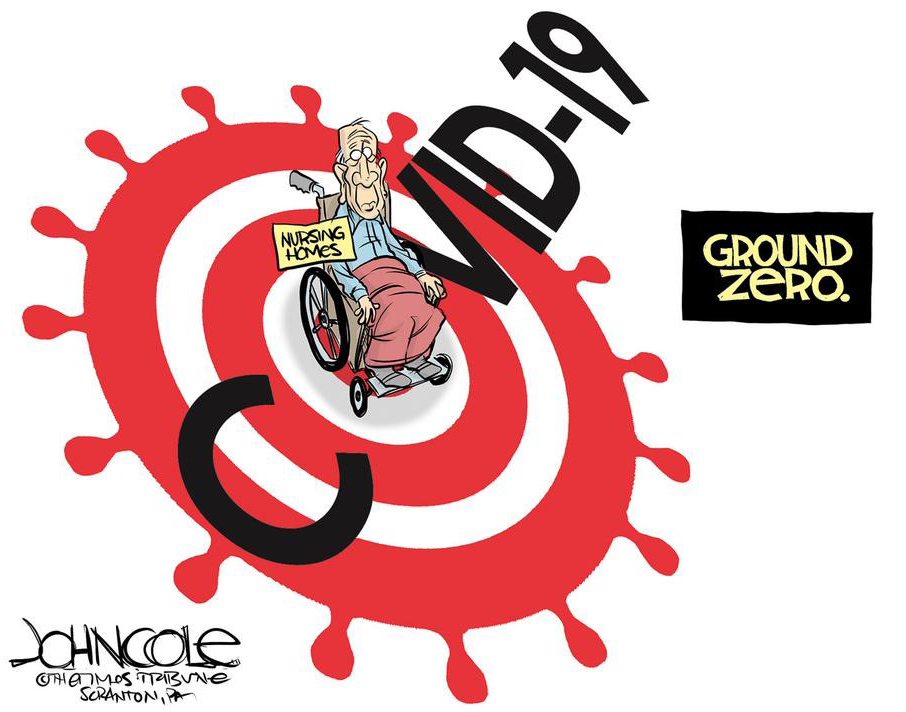|
Are elderly being treated as expendable? They want us to drop so they can shop |
 |

By John Freivalds
Published 5/17/2020
Duluth News Tribune
My grandmother was in a mental institution when Nazi Germany invaded my native Latvia in 1941. Throughout the time she was there my mother visited her daily and brought her food. Then one day she came and saw her mother was no longer there. The staff told her she was "abgerἃmt," which meant swept away. It was also a slang term in German for murdered. Although Hitler and the Nazis were better known for the Holocaust, the mass killing of 6 million Jews, they also put out an edict to rid the population of poor homeless people, those in hospitals or nursing homes, and those who were disabled. In Nazi eyes, these people provided no economic benefit to the country — so why keep them around?
Bloomberg BusinessWeek magazine recently wrote this: "(President) Donald Trump said America should return to their usual lives, even if it leads to more sickness and death, which he now estimates could exceed 100,000."
I'm sorry but this read to me a little too much like the Nazi manifesto of 80 years ago.
A cynical friend of mine who teaches courses at Gettysburg College with a degree in gerontology (in short, the scientific study of old age) said Trump's motto should be, "Drop so we can shop." When the economy opens and deaths from the coronavirus are normalized, people will go out and have steak dinners; get haircuts; and buy refrigerators, new clothes, and maybe a new car. They’ll say they’re helping to get the economy going again, he said.
And if we seniors (I am 76) drop along the way by catching the coronavirus, well, so be it. We will be "warriors and patriots," to borrow a term from Trump, for not getting in the way of refrigerator-buying.
Here’s an interesting conundrum: While Vice President Mike Pence was talking to college presidents about keeping seniors over 70 away from college sporting events, those same presidents’ schools were sending requests to us geezers for donations!
AARP notes that people 50 and older contributed $745 billion worth of unpaid activities in 2018 in ways that broadly benefited society. We provided care for loved ones, helped to raise grandchildren, and volunteered time and support for charities.
Whether we like it or not, President Trump seems to be focused on the November election. In order to win he has to show that the economy is improving.
This brings to mind what Gov. Mario Cuomo of New York wrote in The Guardian: "The fundamental question which we are not articulating is how much is a human life worth? The faster we open, the higher the human cost."
The conservative-news website The Bulwark summed up the issue thusly: "The central fact to be grasped here is that reopening the economy is largely a formality until there is a vaccine. Because only then will people modify their behaviors to something approximating pre-existing levels." A realistic view of the experts is that it will take two years for a vaccine to be developed and distributed, and a J.P. Morgan analyst says it will be 10 years before the economy gets back to where it was.”
I’ll leave the last words to former British Prime Minister Winston Churchill, who summed up where we stand with these words after a North African victory over the Nazis: "Now is not the end. It is not even the beginning of the end. But it is perhaps the end of the beginning."
John Freivalds of Wayzata, Minn., is the author of six books and is the honorary consul of Latvia in Minnesota. His website is jfapress.com. He wrote this for the News Tribune.
